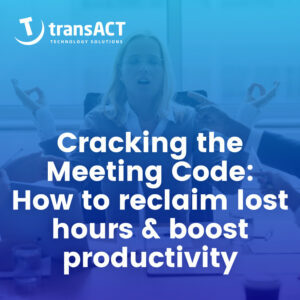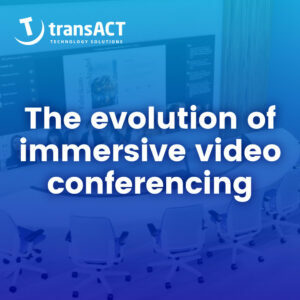Cracking the Meeting Code:
How to reclaim lost hours & boost productivity
Guest blogger: John Vickerage, Modern Meeting Specialist

“More than £47 Billion is spent each year on poorly organised meetings in the UK.”*
*Time wasted in meetings: 30 meeting statistics (Golden Steps ABA)
There are a range of views about optimal meeting length; anything between 15 and 55 minutes. Some Microsoft employees limit their meeting availability to no-more than 30 minutes.
It depends on the range and nature of topics you need to discuss. It makes little sense to prevent yourself having longer meetings when there is a detailed discussion to be had (such as a new employee induction or an important strategic decision). Neither does it make sense to waste time when a quick decision can be made.
We have all been a part of an unproductive meeting, and as the stats show, these are only increasing. In this blog we will explore these challenges and how, with clear collaboration, engagement and outcomes, meetings can and should leave everyone feeling productive, energised and with a common set of goals.

Top tips for an effective meeting:
Why are we here?
Make sure everybody has something to contribute to the meeting, or there is no reason to attend. You may think you are helping employees learn by asking them to observe, but there is a strong chance if they’re not going to say anything, they’re probably daydreaming or catching up on their emails.
Preparation is key
Provide information relevant to the agenda in advance. Ensure meeting participants understand that they must read this and prepare any questions or comments. You will need to ensure participants have time to read it. Sending this 5 minutes before the meeting start is cheating.
Predict likely questions and have answers
This is especially true when you are sending information in advance (see point two). It’s unlikely to be productive if you have to search for information during the meeting and it will slow your progress if you have to find the answers afterwards.
Minimise the chatter
Try to stop irrelevant nattering or unconstructive gossip infecting your efficient meeting. You might come across a bit stern, but it’s important to keep everyone on topic. If you get reproachful looks, remind everyone that by saving time in the meeting, they will have more time for chat outside of the meeting. You’re doing it for them.
Suitable equipment
Technology is important for great meetings. Video conferencing has become standard practice, but you should also offer presentation technology for face-to-face meetings. If I can present in a video call, I should be able to present in face-to-face meetings.
Technical hitches
Up to 15% of meeting time is wasted because the equipment supporting your meeting; presentation technology, conferencing systems, room booking systems fail or are difficult to use. There is little excuse for technology delaying your meetings. If users can’t make it work; it’s probably the wrong equipment. If you can’t pre-emptively confirm the equipment is on-line and functional, get technology that supports this. Better still, get something more reliable.
We shall meet again
Do you ever have the feeling of déjà vu?
This is an obvious one but make sure you capture actions, share them afterwards and ensure they are completed. Otherwise, you are doomed to keep meeting about the same subject.
We believe that if you stick to these principles, you will likely have the appropriate meeting length and prevent attendees from “multi-tasking” or losing focus.
For more information on modern meeting spaces, productive workplace environments and technologies contact the transACT Digital Workplace Team here.

About John Vickerage
John has spent his career working in technology. John was a member of the senior management team for Imago Group Plc, formerly Polycom’s most successful European distributor. More recently he worked with Ascentae Ltd and Alto Technologies, specialists in technology associated with modern meeting rooms, occupancy, and agile working practices.









